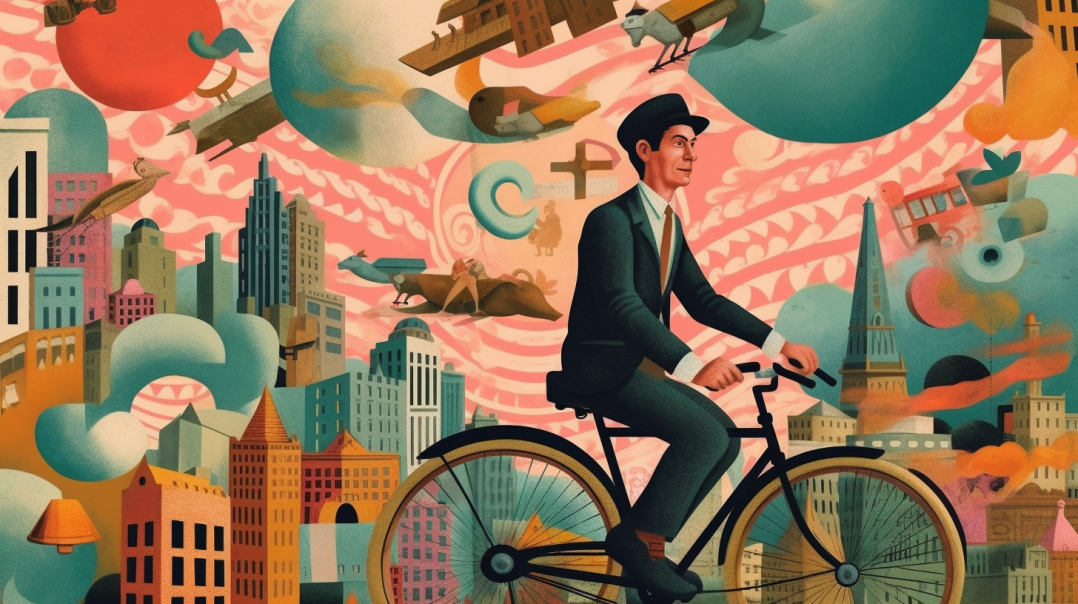How I Predicted the Gig Economy in 2014
Although the gig economy is not eponymous, back in 2014, it was just beginning to be a thing. I had already been a victim of the gig economy. Since 2007, I have been working as a freelance writer. I had a nice little business going. I had been doing writing gigs for a variety of businesses. I made good money in college doing that sort of thing. When people asked what I did, it mostly leads to quizzical looks. I was standing in a Barnes and Noble bookstore back in 2014, and I was chatting with the cashier, and I was talking about freelancing, and I said, “This is the future; in 5 years' time, more people will work like me than work like you,” she shrugged her shoulders, and I left the store. Lo, and behold, here we are: the gig economy is reaching everywhere.
The End of Employment
Traditional employment, in some sectors, is already on its way out. Alphabet, the parent company of Google, is notorious for hiring people as contractors. Those people should be employees with real jobs with benefits and rights, but to avoid all of that, Alphabet hires them as contractors. Obviously, the biggest offenders of this “gig” are apps like Doordash, Uber, and Lyft. Even apps like Airbnb can be classified as a gig for those letting out a house or a room.
The idea within this system is that anything or anyone can be quickly hired and just as easily let go, which is rather insidious. It turns people into a commodity. Labour is no longer about people; it’s simply about service. Something needs to be done, and an essentially disposable person can be brought in to solve the problem and dispense with it just as quickly.

Employment stands in contrast to this idea. An employee has a position. They can take risks, and most importantly, there is a framework on how they can be treated, how many hours they can work, overtime pay, etc. Contractors have none of these protections. This system is easier for employers, but it is to the distinct disadvantage of employees.
Everything is just a Gig
What does the world look like when all work is simply a gig? What does this look like in a world of remote work? These are questions that are still being resolved. Some states like Colorado and California have passed laws trying to stop this trend towards contracts and gigs, but employers eliminate job seekers from those states instead of complying.
One of the side effects is that we end up with an economy of ever more precarious workers working ever harder for mediocre pay under contracts that have no obligation to give them any future. How does one build a career on this basis? I am not convinced that will be a thing in numerous instances. Not only have workers expressed less of a desire to start a career in the 20th-century sense, but there is much less opportunity for that in an environment where everything is a gig and the best way to get a pay rise is to change companies. People changing jobs frequently leads to a fluid employment market and great inefficiencies from increased training costs.

Everything being a gig is a function of something happening in the economy that has been common for some kind now. Why pay people to do something directly when you can hire a company and reduce overhead costs? In my book, What the Hell is Going On? I talk about how Tyson Foods figured out that growing chickens were the most expensive part of their business and began outsourcing it to independent farmers to reduce costs. The only problem is that most Tyson farmers go broke because the rate at which Tyson buys the chickens is less than the expense of the required water, food, and housing for the chickens. Tyson still gets chickens, and the family farmers get a load of debt. Uber drivers have to shoulder the cost of car maintenance on their earnings. The same thing goes for Amazon delivery drivers and others who work independently.

Social Stability
One of the major concerns I have always had with this system is the lack of social stability. When people don’t quite know where their next paycheck comes from, it is harder to plan for the future, save money, or make major life decisions. Instability means that people may or may not need to rely on social services occasionally or move quickly to take advantage of new employment opportunities. The options people may pursue certainly depend on the type of work involved. However, the sad reality is that whether it is an office job or a physical job, the gig economy is many things, but stability is not one of them.
Back in 2014, I remarked that if we were going to pursue this as a society, we would have to change various systems to accommodate this working. Things like cellphone bills, which are charged monthly and even rent, might have to be shifted to a different model so that people can pay when they can and have the cash available.

Ultimately, it seems that it will be difficult to have the social stability we are used to under these conditions. A lack of income stability has deleterious economic effects, as people must be careful with spending to create stability on their own. Often this also causes people to take on less stable roles. Take nurses, for example, a nurse can work with an agency and travel from place to place and get more pay, but that isn’t as stable as being at a hospital consistently over time.
Regarding economic progress, more income goes to the owners of assets rather than those who work and the rich benefit. Quite simply, it’s a transfer of wealth from the bottom to the top. Transferring wealth from the bottom to the top has been a trend that has only gotten worse since the pandemic.
Gig America
The job market is in an interesting place right now. We are getting more contracts and gig work while also going through a labour shortage. Unemployment right now is extremely low. If someone wants a job, barring other factors, they should be able to get one. But are these jobs quality? Do they provide a kind of social stability and good living? Unequivocally, no, for many people. A few fields still provide this kind of thing, but it is becoming more rare. An American run by gig workers is great for the wealthy and corporations, but it is to the disadvantage of every worker.

Cast Iron (a Novel) by Cameron Cowan
When Randy Carruth starts a new life with his sister, mother, and new husband, he never anticipates that this new life could be dangerous and even deadly. Cast Iron explores what happens to a young man lost in the prison system and lost in the world on a journey of forgiveness.
Cast Iron is the story of Randy Carruth, who discovers that his new step-father is not what he seems. He tolerates it for a time, believing that he can do nothing. One day, when he discovers his sister being attacked, he makes a fateful decision that sends him to jail. After being released, Randy enters a world of drugs and male prostitution. Will he ever find his way home? Can he find forgiveness for those that have wronged him and broken his heart?








